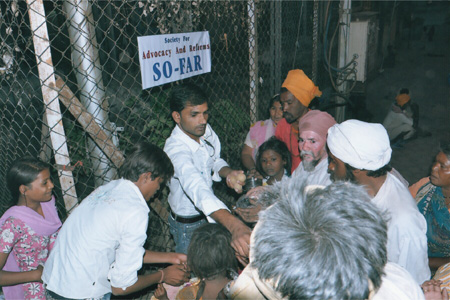Tribal
Eight percent of India's population (about 100 million), the socioeconomic conditions of tribal households continue to be characterised by poverty, hunger, illiteracy and disease. Tribal have been victims of development, as they have been displaced from their natural habitats when dams, industries and mines had to be built to accelerate India's economic development. Today, the conflict and violence in the tribal regions of West Bengal, Chhattisgarh, Orissa, Jharkhand, Maharashtra Madhya Pradesh and Andhra Pradesh is an outcome of six decades of official neglect and inconsiderate exploitation of tribal's and their natural resource base.
Various schemes of the national and state governments have crores of rupees allocated for youth development and enhancing the capacities of tribal men and women. Unfortunately, the implementation of these schemes leaves much to be desired, thereby hindering the process of empowerment of tribal's. SO-FAR efforts are aimed at supporting the effective and accountable implementation of such policies and programmes designed to empower tribal's in the country.
Various schemes for the welfare of tribal families often remain unutilised because the tribal's themselves are not aware about them. Several tribal youth in Tribal area of Madhya Pradesh were trained by SO-FAR in how to access entitlements for tribal families. As a result, many girls from tribal families began to attend residential schools meant especially for them.

